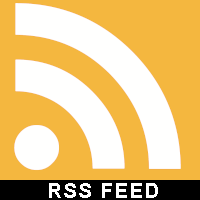Owl Boy (2016)
The Owls, an ancient race of humanoid birds, that maintains order in a broken world of floating islands. Though their numbers have dwindled and most of their ancient technology lost, the Owls that remain still follow their doctrine to protect the villages and cities they call home. Otus, the newest member to the order of Owls, has a lot to prove. His mentor, Asio, thinks very little of him due to his high expectations and the other Owl trainees tease him constantly for his inability to speak. So when an army of Pirates are spotted on the outskirts of his home village, Otus will have to step up in order to prove his worth to all those who have looked down on him.
Fortunately for Otus, it is a journey he won't have to take alone.
OwlBoy is a flying adventure/platformer video game that was independently developed by D-Pad Studios. Simon Stafsnes Anderson, the game's director, also acted as lead designer and created all of the game's artwork. Along with Simon, the game's development team consisted of 5 people. This includes: Jo-Remi Madsen and Simon's brother, Henrik Stafsnes Anderson, as the game's programmers, Adrien Bauer (as co-designer) and Jonathan Geer adding his musical talents as the game's composer. Though the game was announced to the public in 2007, the game was released on PC on November 1, 2016. The game spent almost 9 years in development as the team struggled to find the best way to present Otus' story to a wide audience. According to Anderson, he was originally inspired to create this game to demonstrate the advantages of two-dimensional pixel art and animation in video games.
The number of independently developed video games being released each year has been staggering. Fueled by passionate creative teams who love what they do and, if they are lucky, an enthusiastic fan base that is willing to throw a few dollars they're way in order to make their project a reality. The aspect that most indie games use to draw in their respective audience, is through bypassing or tweaking what is considered conventional gameplay mechanics. Singling out the game as a unique entity that can't be found anywhere else. Because of this idea, the amount of creativity demonstrated in the video game community has skyrocketed, leading several indie titles to reach a popularity that, at for a time, would only come with triple A titles. Last year, Undertale wowed the world with it's inspired take on a morality system and traditional turn based battle (with a bullet hell twist). In 2014 games like Transistor delivered a powerful narrative experience in a cyberpunk world, while games like Never Alone not only entertained but taught them facts of the Inupiat lifestyle and their mythology.
This year, that distinctive honor will also go to the long awaited OwlBoy.
But what exactly is it about this game that made it worth the 9 year wait?
To start, let's take a look at the gameplay and how it ties with the story.
Part of what makes OwlBoy a unique platformer is that the game's challenges rely on players to be able to use not one but two characters in conjunction with each other. Otus, as an Owl, has the ability to fly and carry things through the air uninhibited but that is about all he can do. He has a handy little spin attack, but it does little but stun monsters that are out to cause him harm. That is where the supporting cast comes in. Along his journey, Otus is accompanied by a small band of allies who have their own abilities to contribute. As Otus, you can pick up these characters and carry them through the air. Using their abilities to defeat enemies and solve various environmental puzzles. The game even goes out of its way to give you a handy mechanic to summon each respective ally instantly so you don't have to fly all the way back to where you last left them. Which given how quickly this game moves from one area to the next, is extremely important.
Despite the ease of use of this mechanic (even if it may take some a little while to get used to it. Like I did). this game is FAR from easy. Each new area has new monsters and challenges that will put your skills to the test. Particularly the later boss battles.
Sometimes it would seem like there was so much going happening onscreen that I had difficulty keeping up. Frantically trying to switch between partners while watching poor Otus get slammed back into a wall again and again. That being said, the game is by no means unfair. The puzzles and bosses are clearly designed with solutions and weaknesses that can be found. But you as the player have to take the time to figure it out piece by piece. In a generation where a lot of games hold your hand with solving puzzles and boss fights, it is refreshing to find a game that takes the classical approach to conveyance through level design.
But even more importantly, is how OwlBoy is able to demonstrate the overall theme of the game, not just through the narrative (which is also expertly crafted) but through the gameplay as well. From the very beginning of the game, we see Otus begin his training to become a full-fledged Owl and how he seems to disappoint his mentor at every turn. Leading to an excellently scripted sequence where Otus grapples with his self-confidence. A struggle that persists through the game, as our heroes hit setback after setback.
The second point that makes OwlBoy such a special indie game is the art and animation. I find it interesting that part of Simon Anderson's inspiration for this game came from his desire to demonstrate the benefit and charm of two-dimensional game art, over three-dimensional graphics. His passion for this idea comes through very clearly in just about every single aspect of Owl Boy. From the charming character designs, vibrant backgrounds that really makes the world feel lived in, and most important of all, animation that helps bring everything to life. I have seen a fair bit of pixel animation in video games but I can't remember the last time I explored a world animated this way that just felt so alive. OwlBoy is also abundant will well-animated characters, that have unique animations that help set them apart and give you a window into their personalities.
For example, though Otus can't talk, we get an idea of his thoughts and feelings through his facial expressions and body language. From an adorable wide smile when he is happy or pleased, to a hunched over slow paced walk when he is nervous or scared. His hands pulling his Owl cloak around his chest like a child using their favorite blanket to try and protect themselves from the elements. Even the smaller details, like leaves from a plant, just flapping in the wind seem far more detailed than I remember from older games that used a similar style. This level of detailing is consistent throughout the game as you take Otus from one harrowing trial to the next.
There is little else I can say at this time without going into spoilers so I'm going to leave you with my final thoughts. It is because of games like this, that I have come to appreciate the world of indie games. Games made by people out of love for the medium who take the chance to share their passion project with the world. It is by no means an easy task, and many remain in obscurity. But fortunately for Owl Boy and D-Pad Studios, their 9-year journey has finally reached its happy ending.
Owl Boy is currently only available for Microsoft Windows and can be purchased on Steam, Good Old Games, and Humble Store, though there has been talk of making it available to console systems in the near future. For more information on D-Pad Stuidos, check out their website. The game's impressive soundtrack can also be found here.





























